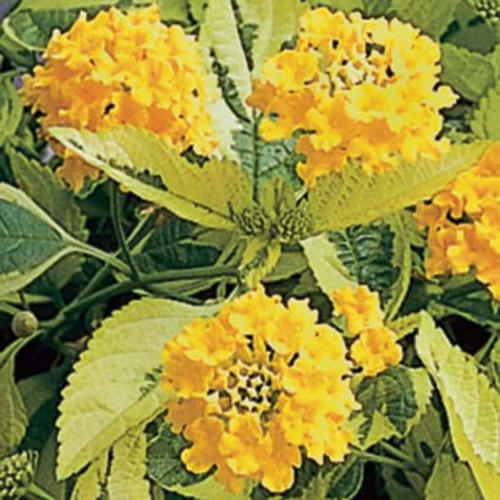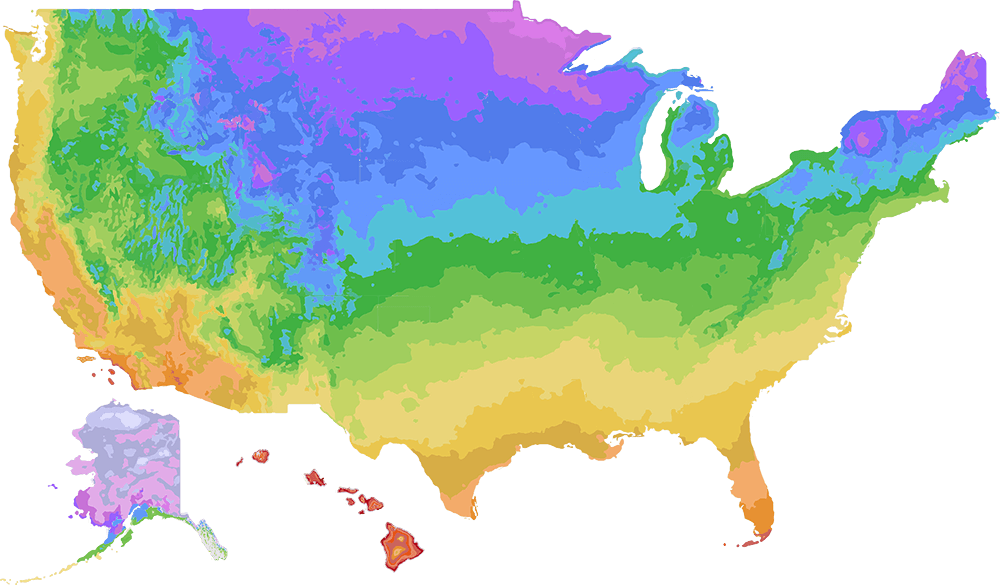This one and, or one or more of the other colours are in my porch planters as well as my hanging baskets. They are a must have.
Samantha Lantana camara
-
Details
Features
Yellow can add a punch of color into any garden or container. Samantha's bright yellow flower clusters bloom throughout the summer and attract wildlife like birds, butterflies and hummingbirds. This native has incredible heat tolerance.
Fragrant FoliageHeat TolerantDeadheading Not NecessaryDrought TolerantAttracts:BirdsButterfliesHummingbirdsCharacteristics
Plant Type:AnnualHeight Category:MediumGarden Height:10 - 16 InchesSpacing:24 - 30 InchesSpread:24 - 30 InchesFlower Colors:YellowFlower Shade:YellowFoliage Colors:GreenFoliage Shade:Dark GreenHabit:MoundedContainer Role:FillerPlant Needs
Light Requirement:SunThe optimum amount of sun or shade each plant needs to thrive: Full Sun (6+ hours), Part Sun (4-6 hours), Full Shade (up to 4 hours).
Maintenance Category:EasyBloom Time:Planting To FrostHardiness Zones:9a, 9b, 10a, 10b, 11a, 11bWater Category:AverageUses:ContainerUses:LandscapeUses Notes:Use in containers, hanging baskets and window boxes
Maintenance Notes:If you are looking for a tough plant it's hard to beat lantana. Lantana are heat tolerant, use little to no supplemental water in the landscape, will tolerate less than ideal soils and usually don't need to be deadheaded. If you are looking for a plant that will thrive on neglect, lantana is the champ. Lantana come in many shapes, sizes and habits. Check size and habit information for the specific variety you are choosing to make sure it fits your needs. Lantana can be trimmed back at anytime to shape or to promote increased branching.
In many parts of the US and Canada lantana function as an annual. In reality they are a tender perennial, in warm winter climates they become flowering shrubs.
If you live in an area where Lantana is perennial they are essentially trouble free, they can be pruned at any time of year and usually benefit with a harder shape-up pruning in early spring after last frost date. Midsummer fertilization can help overcome any slow down in growth during the dog days of summer and help bring even more flowers.
According to the Humane Society of America Lantana leaves can be toxic to pets. This means that the plants are generally identified as having the capability for producing a toxic reaction.
Lantana seed set varies considerably. If you see a lot of berries developing you may want to deadhead the plants to help with continuous blooming. If there is low berry set, deadheading shouldn't be necessary for continuous bloom. Some varieties are self-cleaning.
An application of fertilizer or compost on garden beds and regular fertilization of plants in pots will help ensure the best possible performance.
-
1 Review
514321Browse reviews from people who have grown this plant.-
M.Montague, British Columbia, Canada, 10 years ago
-





